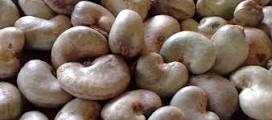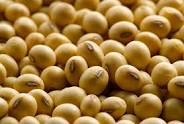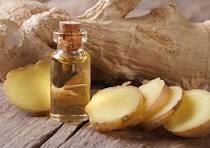Raw Cashew Nuts Export From Nigeria; The Feasibility Report.

Cashew (Anacardiumoccidentale) is an important industrial and export crop whose potential is yet to be fully exploited in Nigeria. Cashew has for many years been used for food and income generation.
The trees are usually grown for their kernels which when roasted have a very pleasant taste. Cashew is the common name for a tropical and subtropical evergreen tree, Anacardiumoccidentale L., in the flowering plant family Anacardiaceae.
It is also the name for the commercially important kidney-shaped, nut like seed of this plant, which is edible when roasted or cooked (New World Encyclopaedia, 2008). The plant is a native of Tropical Central and South America, notably North Eastern Brazil, from where the Portuguese explorers introduced it into Nigeria in the 15th/16th century.
In Nigeria, Cashew nuts are produced in 28 states of the Federation and the Federal Capital Territory (FCT). In 2004, Nigeria’s production of cashew amounted to 60,660 tonnes out of which, 30,510 tonnes were exported at a value of US$22.27 million.
In the early 1970s, the majority of global cashew production (68 percent of total) took place in African countries, in particular, Mozambique and Tanzania. Over the following thirty years, production trends shifted, with Asian countries emerging as the world leaders in cashew production.
Today, India commands about 40 percent of the international market in cashew production. Other Asian countries, particularly Vietnam and Indonesia, are beginning to expand their production capacities. Currently, the four main cashew producing regions are India, Brazil, Nigeria and Tanzania.
World production of cashew nuts grew rapidly during the 1950s and 1960s, reaching a peak of 624 000 tonnes of raw nuts in 1973. Three countries – India, Mozambique and Tanzania accounted for the majority of this production, while smaller industries had developed in Brazil, Kenya and several other African countries.
In 1975-76, there was a sharp decline in world production, which continued into the 1980s. This decline was largely due to decreased production in Mozambique and Tanzania, since production in India during that period remained static.
Nigeria is the 6th largest producer of cashew in the world after India, Brazil, Vietnam, Guinea Bissau and Tanzania. Like most African producers, most of Nigeria’s production are exported in raw form to India and Vietnam for processing and export with added value and benefits to those economies. Vietnam, for example entered the field of cashew production for export in the early 80’s about the same time Nigerians became aware of the commercial significance of cashew.
The United States is the largest importer of cashew kernels, accounting for over 50 percent of world imports. Other importers include the Netherlands (ten percent), Germany (seven percent), Japan (five percent) and the United Kingdom (five percent).
The former Soviet Union was previously a major importer of cashew kernels, but with recent economic changes, trade to this part of the world has diminished. Other emerging markets include the Middle East, South East Asia and Australia.
There is an urgent need for the injection of more funds by the Government into the Nigerian cashew processing sector in order to add value to the products such that processed kernels are exported.
The Nigerian cashew nuts are of high quality and its processed kernels have wide acceptability in European and American markets.
The return on investment on the export of raw cashew nuts is estimated between 10%- 15%.
Table of Contents
1. Introduction 1.1 Executive Summary 1.2 Business Opportunity 1.3 Country Background 2. Technical Analysis 2.1 The Project 2.2 Product Description 2.3 Product Location and Distribution 2.4 Legal Considerations 2.4.1 Pre-Export Documentations in Nigeria 2.4.2 Post-Export Documentations (Exchange Control Documents) 3. Opportunity 3.1 Market Overview 3.2 Demand and Supply 3.3 Customer Profile 3.4 Primary Competition 3.5 Competitive Advantage 4. Managing Contract Negotiations and Export Operations 5. Socio- Economic and SWOT Analysis of the Project 5.1.1 Generation of Employment 5.1.2 Source of Government Revenue 5.1.3 Foreign Exchange Generation 5.1.4 Technological Transfer 5.1.5 Increase in Gross Domestic Product (GDP) 5.2 SWOT Analysis 6. Risk Identification and Mitigation Strategy 6.2 Critical Success Factor 7. Financial Analysis
Project Specification:
Additional Info
Get this Report
Direct bank transfer
To order the report, Please do pay the sum of ₦5,000 into
Account Name : Foraminifera Market Research Ltd
Account Number : 274 20 569 37
Account Name : Foraminifera Market Research Ltd
Account Number : 101 76 603 95
Account Name : Foraminifera Ventures
Account Number : 011 66 066 32
Make your payment directly into our bank account. Please use your Order ID as the payment reference. Your order will not be shipped until the funds have cleared in our account.
Instructions
After payment call us on 01 -29 52 413 / 08033782777 or email us at foraminiferamarketresearch@yahoo.com with the payment details. After payment confirmation, the soft copy of the report would be sent to you within 24 hours.



